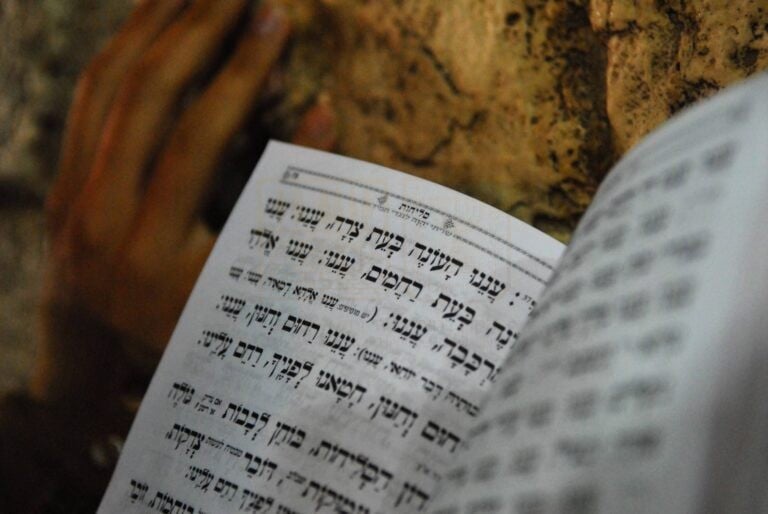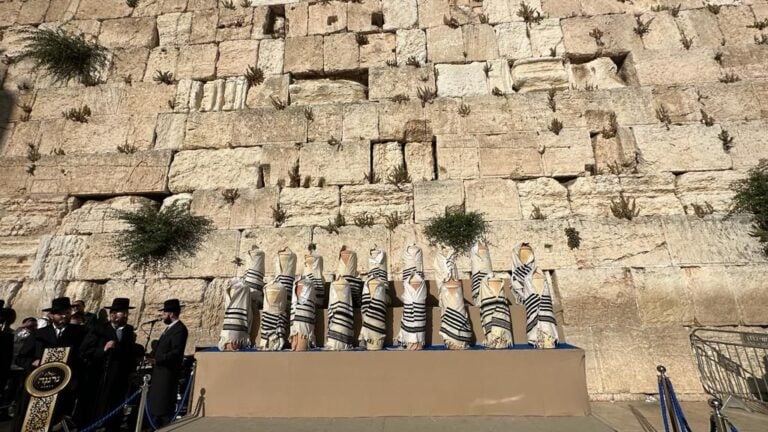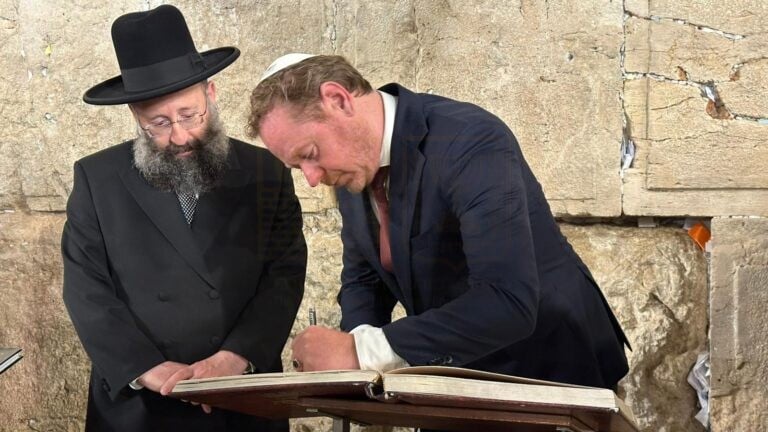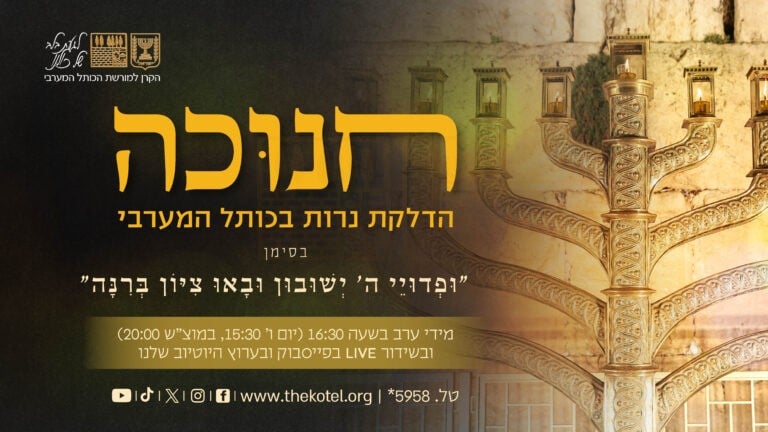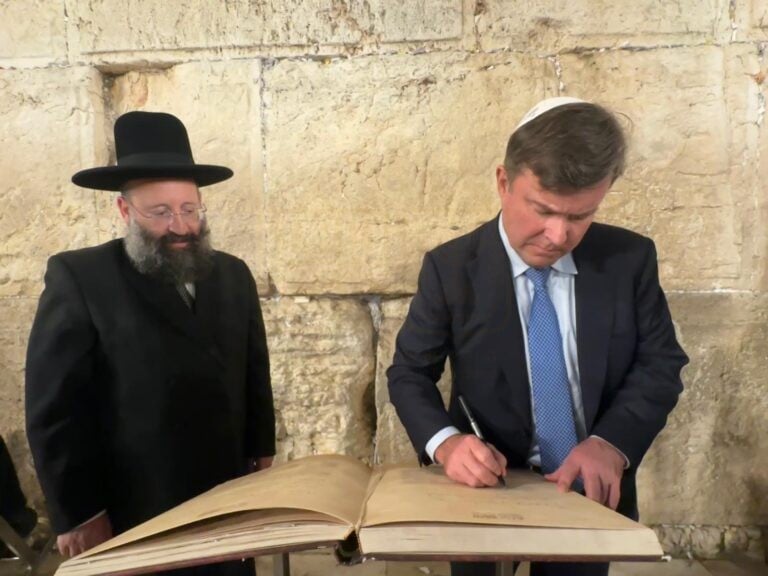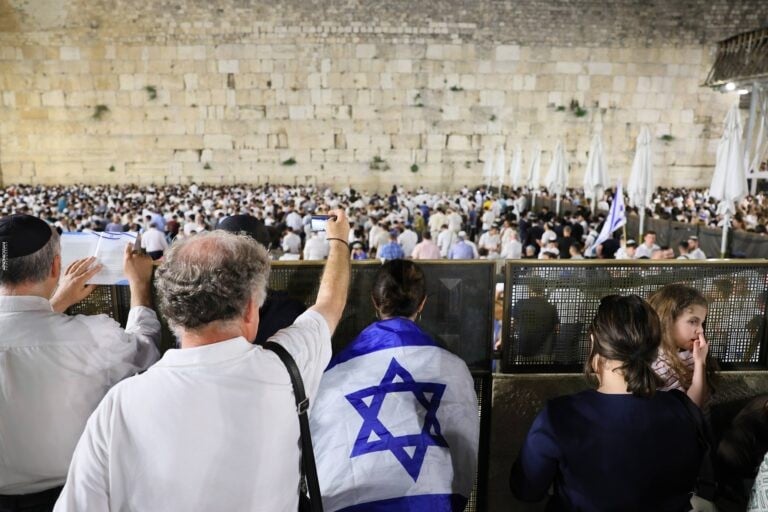Parashat Vayera – 5783
Rabbi Shmuel Rabinowitz, Rabbi of the Western Wall and Holy Sites
Parashat Vayera is the second parasha focused on our patriarch Abraham. In the previous parasha, we read about the birth of Ishmael to Abraham and Hagar, Sarah’s maidservant, who had married Abraham following Sarah’s proposal to do so when Sarah had despaired of having children. Ishmael, the son Hagar bore to Abraham, was fourteen years old when he had his second son, Isaac, with Sarah.
In this week’s parasha, we read about tension in Abraham’s household between Sarah and Hagar and between Ishmael and Isaac. After Isaac grew up a bit and was weaned from nursing, Abraham made a great feast after which we read the description of the growing tension in the household:
And Sarah saw the son of Hagar the Egyptian, whom she had borne to Abraham, making merry. And Sarah said to Abraham, “Drive out this handmaid and her son, for the son of this handmaid shall not inherit with my son, with Isaac.”
(Genesis 21, 9-10)
Sarah was suspicious of Abraham’s firstborn. She saw him “making merry,” which according to commentary refers to permissive behavior, and she refers to him condescendingly as “the son of this handmaid.” In Sarah’s eyes, Isaac was Abraham’s main son, as he was the son of his legal and main wife. But Abraham also saw Ishmael as his son, and Hagar as his wife, and did not want to banish them from his home. He was worried about what we read as the story continues, that such a banishment might lead to their deaths in the desert:
But the matter greatly displeased Abraham, concerning his son.
(Ibid Ibid, 11)
Then G-d gets involved in the story, to our great surprise, and tells Abraham to listen to Sarah and banish the maidservant and her son:
And God said to Abraham, “Be not displeased concerning the lad and concerning your handmaid; whatever Sarah tells you, hearken to her voice, for in Isaac will be called your seed.”
Meaning – Isaac is your main son. He is the “seed” that was repeatedly promised to you. But does that justify endangering Hagar and Ishmael? G-d answers and tells Abraham:
“But also the son of the handmaid I will make into a nation, because he is your seed.”
(Ibid Ibid, 12-13)
Ishmael will not die in the desert, says G-d as he calms Abraham. On the contrary, he will flourish and succeed and become a nation since he is Abraham’s son.
This story is a link in the chain of the ten tests G-d gave Abraham. Some of these tests entailed dealing with things that seemed like divine injustice; for example, when G-d shared with Abraham His plans to destroy the city of Sodom due to the sins of its inhabitants. Abraham rose up against the plan. “Far be it from You to do a thing such as this, to put to death the righteous with the wicked…Will the Judge of the entire earth not perform justice?!” (18, 25). In that case, Abraham did not need to act, but he was unable to make peace with something he thought to be unjust. Indeed, G-d accepted Abraham’s claims and said that if there were even just ten righteous people in Sodom, He would not destroy the city, and that in any case, the few righteous people in Sodom would be saved.
In the story of the banishment of Ishmael, Abraham again faces a command that seems unjust to him. Even if Ishmael’s behavior was far from perfect, did it warrant him dying of thirst in the desert? Even if Abraham agreed that it was a good idea to separate Ishmael from Isaac, he was not prepared to throw his eldest son out of the house irresponsibly. Here, too, G-d justifies Abraham. He indeed instructs him to banish his son from his home, but He calms him by saying that no harm would come to Ishmael as a result of this banishment, he will succeed in his own path, outside of Abraham’s home.
Abraham’s moral stance is repeatedly affirmed by G-d. This was Abraham’s uniqueness. He understood “the way of the Lord to perform righteousness and justice” (18, 19) and from this place of great faith in G-d, he demanded justice. The stories of our patriarchs teach us that faith in G-d is intertwined with values of justice and morality. That is why Abraham was chosen, and it is his path we are called upon to follow.
